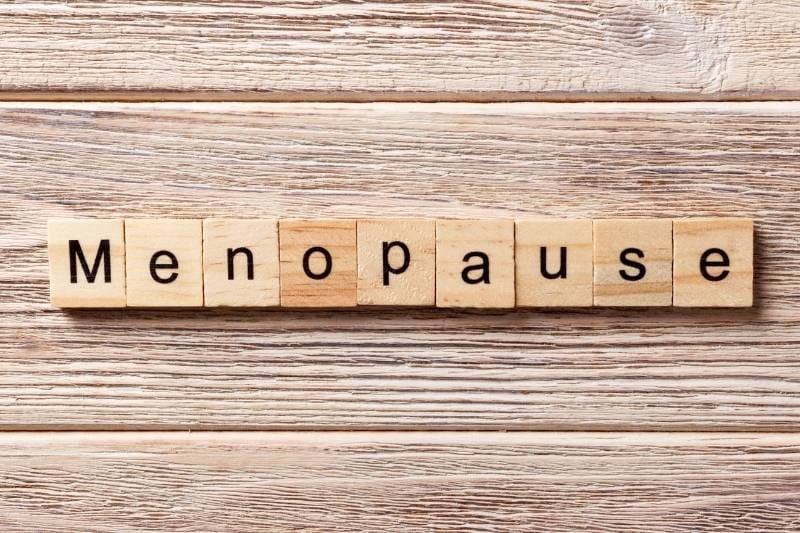Ultra processed foods are products that have been heavily altered during manufacturing, often containing additives, flavourings, colourings, and other ingredients you would not normally use in home cooking. While some can be eaten occasionally without harm, a diet high in ultra processed foods is linked to overeating, weight gain, and poorer health over time.
Dr. Chris van Tulleken’s book Ultra-Processed People and his BBC documentary have made many people in the UK question how much of their diet comes from these foods. My weight loss coaching and fitness coaching clients often ask how to recognise ultra processed foods, which ones to cut down on, and whether avoiding them entirely is necessary.
What Counts as Ultra Processed Food?
Ultra processed foods, often shortened to UPFs, are products that have gone through multiple industrial processes and contain ingredients you would not usually use in a home kitchen. They often combine food substances, such as refined flours, oils, and sugars, with additives, colourings, flavour enhancers, preservatives, or artificial sweeteners.
This category is different from simple processed foods like frozen vegetables or plain tinned tomatoes. Those are processed for convenience or preservation but remain close to their natural state. Ultra processed foods are more engineered, often designed to be tasty, cheap, and long-lasting on shelves.
You can usually spot a UPF by:
- Long ingredient lists, often including words you don’t recognise
- Bright packaging and heavy marketing
- A taste that feels “hyper-palatable” – salty, sweet, and fatty all at once
Ultra Processed Food List (UK Everyday Examples)
Here’s a UK-focused ultra processed food list. These are foods many of us buy from supermarkets without thinking about how much they’ve been altered:
- Soft drinks and energy drinks – full of added sugars, sweeteners, flavourings, and colourings
- Pre-packaged cakes, biscuits, and pastries – often contain emulsifiers, flavourings, and preservatives
- Processed meats such as cheap sausages, reconstituted ham, pepperoni, and chicken slices
- Instant noodles and packet soups with flavour enhancers like monosodium glutamate
- Frozen ready meals or microwavable trays with multiple preservatives and stabilisers
- Chocolate bars, sweets, and confectionery containing added fats, sugars, and emulsifiers
- Crisps and savoury snacks with artificial flavouring and refined oils
- Sugary breakfast cereals and cereal bars often marketed as healthy but high in additives
- Flavoured low-fat yoghurts with sweeteners and thickening agents
- Ultra processed breads and wraps with stabilisers and added sugars for softness and shelf life
Not every item on this list is bad in itself, but when they make up the bulk of your diet, they can crowd out more nutritious, less processed options.
Ultra Processed Food to Avoid or Eat Less Often
Rather than a strict “never eat this” list, think of these as foods to eat less frequently:
- Fizzy drinks and sweetened juices
- Cheap processed meats
- Packaged cakes and pastries
- Sweets and confectionery
- Highly processed savoury snacks
These are easy to overeat and often don’t provide much nutrition beyond calories. Swapping them at times for water, fruit, nuts, or minimally processed meats can improve diet quality without feeling restrictive.
Ultra Processed Food Examples That Surprise People
Some foods that seem healthy are actually ultra processed:
- Protein bars with long ingredient lists
- Plant-based meat substitutes with gums and stabilisers
- Instant porridge pots with sweeteners and powdered milk products
- Low-fat spreads and flavoured low-calorie sauces
This does not make them bad, but it’s worth knowing that even foods with health claims can fall into the ultra processed category.
Ultra Processed Food Documentary and Book
The BBC documentary featuring Dr. Chris van Tulleken helped make this topic mainstream. In his experiment, he ate 80% ultra processed foods for a month, mirroring the average UK diet. He reported increased hunger, weight gain, and changes in mood. His book Ultra-Processed People digs deeper into the science and industry practices behind these products.
If you want to understand why these foods dominate supermarket shelves, both the book and the documentary are worth exploring. They’re not fearmongering but do raise good questions about how we eat today.
Why Are Ultra Processed Foods Considered Unhealthy?
Research suggests high consumption of UPFs may be linked to:
- Weight gain due to calorie density and low satiety
- Higher risk of type 2 diabetes and heart disease
- Poorer gut health from low fibre and high additives
- Increased cravings caused by hyper-palatable flavours
It’s important to say that many studies show correlation, not direct causation. The real issue seems to be that ultra processed foods encourage overeating while providing fewer nutrients.
Ultra Processed Foods and Weight Loss: Do They Make It Harder to Lose Weight?
Many studies show a link between diets high in ultra processed foods and weight gain. While it’s not just about calories, these foods can make it much harder to manage your weight for several reasons:
- Easy to overeat: UPFs are often designed to be hyper-palatable, meaning they’re salty, sweet, or fatty in a way that makes it easy to keep eating beyond fullness.
- Lower in fibre and protein: This can leave you feeling hungry again soon after eating, leading to more snacking.
- Liquid calories add up: Sugary drinks, milkshakes, or even “healthy” smoothies made with concentrates can add hundreds of calories without much fullness.
- Processed carbs spike blood sugar: Some UPFs cause quick rises and crashes in energy levels, leaving you craving more food soon after.
- Portion sizes are misleading: Packaged snacks and ready meals can be calorie-dense even in small portions, making it tricky to track intake.
If you’re trying to lose weight, cutting down on ultra processed foods can help you feel fuller on fewer calories. Simple swaps – like wholegrain bread instead of white sliced, water instead of fizzy drinks, or homemade meals over ready meals – can make managing your calorie intake far easier without feeling like you’re on a strict diet.
How to Cut Down on Ultra Processed Foods Without Going Perfectly ‘Clean’
Perfection is not the goal. A realistic, balanced approach works best:
- Read labels – the fewer unrecognisable ingredients, the better
- Cook a little more at home – batch cook simple meals like pasta sauces, curries, or soups
- Choose minimally processed snacks – nuts, fruit, boiled eggs, cheese sticks
- Make swaps – wholegrain bread instead of white sliced, homemade wraps instead of packaged ones, sparkling water instead of fizzy drinks
- Plan ahead – if you have easy, healthier options ready, you’ll rely less on grab-and-go UPFs
Should You Avoid Ultra Processed Food Completely?
No. UPFs can be convenient, affordable, and sometimes even the best option available. The real problem is when they form the bulk of your diet every day. Making small swaps and increasing the proportion of whole foods is often enough to feel better and improve long-term health.
FAQs on Ultra Processed Foods
1. What are ultra processed foods in simple terms?
They’re foods that have been heavily altered with ingredients you would not usually use in home cooking, often with additives and flavourings.
2. What’s the difference between processed and ultra processed food?
Processed food might just be frozen or preserved, while ultra processed foods are more industrially made with additives and extra chemicals.
3. What are the top ultra processed foods to avoid?
Sugary drinks, cheap processed meats, packaged cakes, sweets, and crisps are best limited.
4. Are all ready meals ultra processed?
Many are, but not all. Check labels for whole ingredients and fewer additives.
5. Can ultra processed food be healthy?
Some are fortified with nutrients or higher in protein but still lack whole food benefits.
6. Is bread an ultra processed food?
Standard supermarket sliced bread often is, while artisan bakery bread with minimal ingredients usually isn’t.
7. Are plant-based meats ultra processed?
Most are, due to gums, stabilisers, and flavourings, though not all are unhealthy.
8. Does eating ultra processed food cause cancer?
Studies suggest a link with some cancers, but this is still being researched.
9. How much ultra processed food do UK adults eat?
On average, about 50–60% of the diet in the UK comes from ultra processed sources.
10. What’s the easiest way to eat less ultra processed food?
Start with small swaps: drink water instead of fizzy drinks, cook one extra homemade meal per week, and choose snacks with minimal ingredients.
11. Do ultra processed foods make weight loss harder?
Yes, for many people they do. Ultra processed foods are often high in calories but low in fibre and protein, which means they don’t fill you up for long. They’re also designed to be easy to overeat, which makes staying in a calorie deficit more difficult. Swapping some UPFs for fresh or minimally processed foods can help you feel fuller and make weight loss easier to manage.
My Final Word on Ultra Processed Food
Ultra processed foods are a big part of modern diets. While some are fine in moderation, building your diet mainly around fresh or minimally processed foods can help you feel fuller, manage your weight, and improve long-term health. You don’t need to ban anything completely, but being aware of what’s in your food and making simple swaps can make a real difference.
I can help you…
I am a Weight Loss Coach, successfully helping people just like you to lose weight and keep it off:




